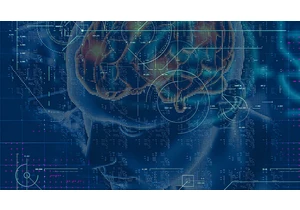Greetings from Plugged In, Fast Company’s weekly tech update from me, global technology editor Harry McCracken. If a friend or colleague forwarded this edition to you—or you’re reading it on FastCompany.com—you can check out previous issues and sign up to get it yourself every Wednesday morning. Write to me at hmccracken@fastcompany.com.
In case you haven’t seen them yet, four Fast Company tech stories worth your time:
- How Meta gave up on politics
- ‘AI for Humans’ may be the most entertaining way to learn about artificial intelligence
- Walmart isn’t buying Vizio for its hardware. It wants the TV maker’s ad business
- The LockBit cybercrime takedown shows FBI is getting more media savvy
Of all the transfixing, unsettling moments in the short history of generative AI as we know it, few have topped OpenAI’s unveiling of Sora last week. The company’s first tool for producing videos based on written prompts, it’s still a research project, available only to a team assessing its potential dangers and selected creative professionals. The clips OpenAI and others have shared are all under a minute and silent. But what they prove about AI’s ability to simulate video shot with a camera suggests we’re in for an eventual onslaught of footage that successfully fakes the world around us. The title of my colleague Jesus Diaz’s story on the news is apt: “OpenAI’s Sora is awesome, scary, and one step closer to killing reality.”
As I wrestled with Sora’s implications for society, my mind turned to another Fast Company article. We published it way back in October 2020—which, in AI years, was at least a couple eons ago. The piece, by Benj Edwards, was titled, “AI threatens to rewrite history. Here’s how to protect it.” And though most tech journalism has the briefest of shelf lives, this example has grown only more resonant with time.
In it, Benj theorized that increasingly sophisticated AI imagery and audio might eventually lead to an era when bad actors could mess with our shared understanding of existence by churning out plausible deepfakes of historical media, such as a clip of Neil Armstrong and Buzz Aldrin appearing on The Dick Cavett Show to confess that the moon landing had been faked. He explored several potential solutions, from developing technologies to detect AI-generated media to archiving all the real media in a “cryptographic ark” to confirm its validity forever.
These days, Benj writes about AI full time for Ars Technica. But he first made his journalistic bones as a chronicler of the computing industry’s past. His brilliant Fast Company contributions include the untold story of how the video game cartridge was invented and a piece on Chuck E. Cheese’s early days that’s so definitive, John Oliver cribbed from it (with credit) in a recent show. He says that his interest in where tech has been is inextricable from his perspective on where it’s going: “I always called myself a historian, but I also thought of myself as a futurist at the same time.”
When I edited Benj’s 2020 story for publication, I thought his concerns about AI-generated media becoming indistinguishable from that captured with cameras and microphones were fascinating but possibly premature, as if he were arguing that we needed stringent speed limits for flying cars. Now I know that he was getting worried at precisely the right time.
Actually, Benj has been obsessing about some of the fundamental questions at play ever since he read futurist Ray Kurzweil’s 1999 book, The Age of Spiritual Machines. “I was a senior in high school when it came out,” he explains. “And he predicts machines that will be able to paint like a human and do things like that. I remember telling my wife, after I met her six or seven years later, about a future where machines could do creative things. She thought I was insane.”
Almost a quarter century after Kurzweil’s book was published, computers can do a lot more than paint, as Sora proves with every video it spits out. Many of OpenAI’s early creations aren’t quite as impressive upon close inspection—in some cases because they’re unnaturally hyperrealistic, and in others because they aren’t realistic enough. (People with unexpected quantities of fingers remain a telltale sign of AI’s fallibility.) But if anything, the technology has progressed more rapidly than Benj anticipated in his 2020 article. The dire developments he posited as potentially happening around 2030 feel like they could start to crop up any moment now.
That’s not because Sora itself is likely to facilitate a worst-case deepfake dystopia all by itself. Once it’s more widely available—and, surely, ever more effective at synthesizing reality—OpenAI will presumably discourage the generation of convincing videos depicting, say, Joe Biden bowing in fealty to the Martian King. In fact, it may go to extreme lengths to discourage inappropriate use of its new tool.
Still, we’ve already seen plenty of examples of people leaping over AI services’ guardrails, regardless of their creators’ intentions. Even more significantly, the kind of advances reflected in Sora are unlikely to remain OpenAI’s alone. “As soon as you give a hint of the technique of how you do this, the other extremely smart people in the world figure out how to do it, too,” says Benj. “That’s what’s happened so far in generative AI: Stable Diffusion came out less than five months after [Open AI’s] DALL-E 2 in 2022.”
Sooner or later, Sora-like video generation could be available as a service from companies with less interest in preventing harmful applications of their technology, or open-sourced so that nobody in particular gets to decide how it gets used. “I think having these tools without guardrails is probably inevitable,” says Benj. “None of this is OpenAI’s fault. They’re actually giving us a warning by showing us, ‘Hey, this is possible now, and very soon it could be much more powerful. And we haven’t released it yet, but look at what we can do.”
Meanwhile, most of the approaches to mitigating AI media’s risks that Benj covered in his article remain relevant. Some are at the core of work being done by organizations such as the Content Authenticity Initiative, an industry group dedicated to developing ways to establish the provenance of digital content. It’s not a given that the sprawling breakdown of trust in historical media that he outlined in his article will happen. Yet it’s hard to imagine that elements of it won’t intrude on everyday life in profoundly negative ways. After all, disinformation and people’s eagerness to believe what they’d like to believe are hardly new problems—just eternal ones that technology could scale up further than ever before.
“It’s not as easy as just saying, ‘Yes, AI’s gonna destroy all of this,’ or ‘No, it’s not,”” says Benj. “There are going to be a lot of scenarios in between.” Whatever happens, he will have the sobering privilege of being able to say he told us so back in 2020. And I will remain glad that Fast Company was where he chose to do it.
Autentifică-te pentru a adăuga comentarii
Alte posturi din acest grup

If you’ve built an audience around documenting your 9-to-5 online, what happens after you hand in your notice?
That’s the conundrum facing Connor Hubbard, aka “hubs.life,” a creator who

OpenAI should continue to be

WhatsApp should prepare to leave the Russian market, a lawmaker who regulates the IT sector

This is an edition of Plugged In, a weekly newsletter by Fast Company global technology editor Harry McCracken. You can sign up to receive it each Friday and read all issues



Big changes are coming to the web in the days ahead. On July 25, the U.K.’s Online Safe
